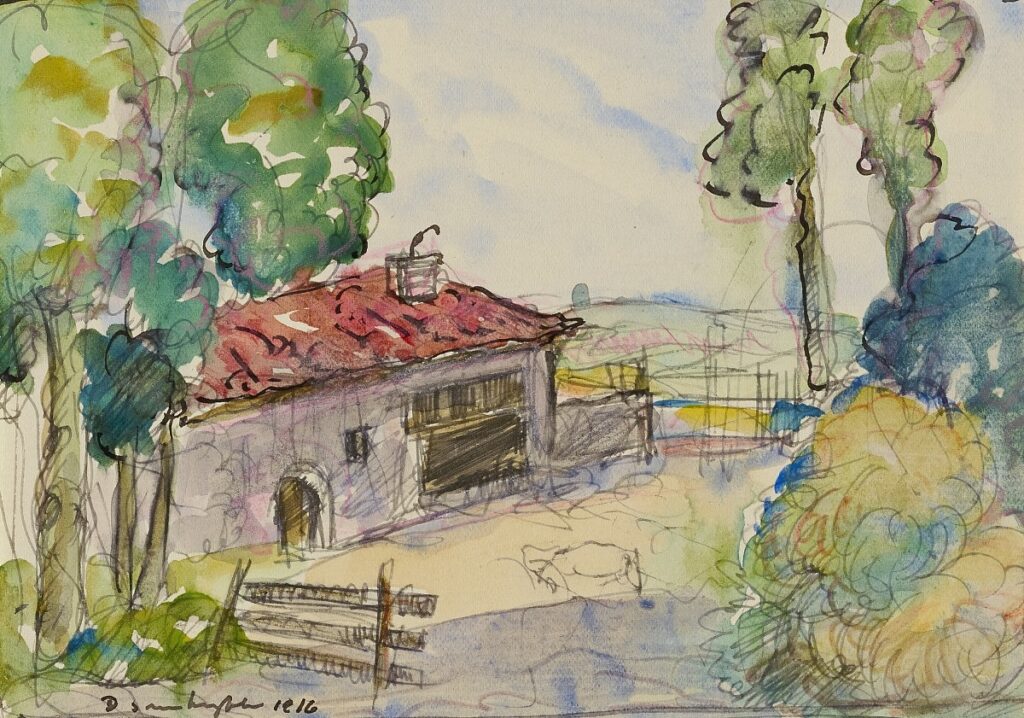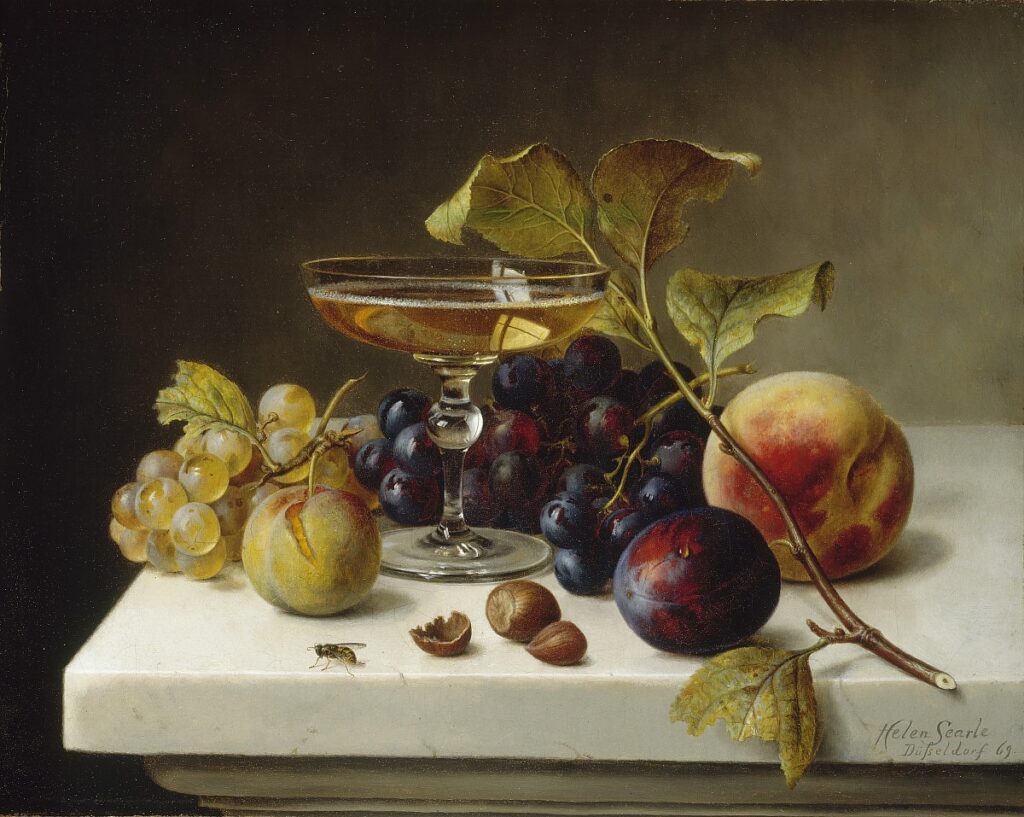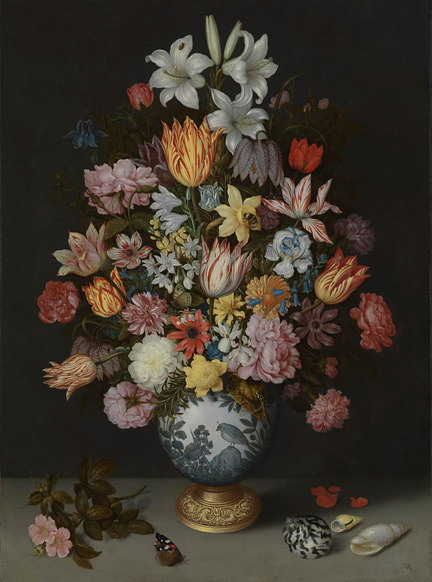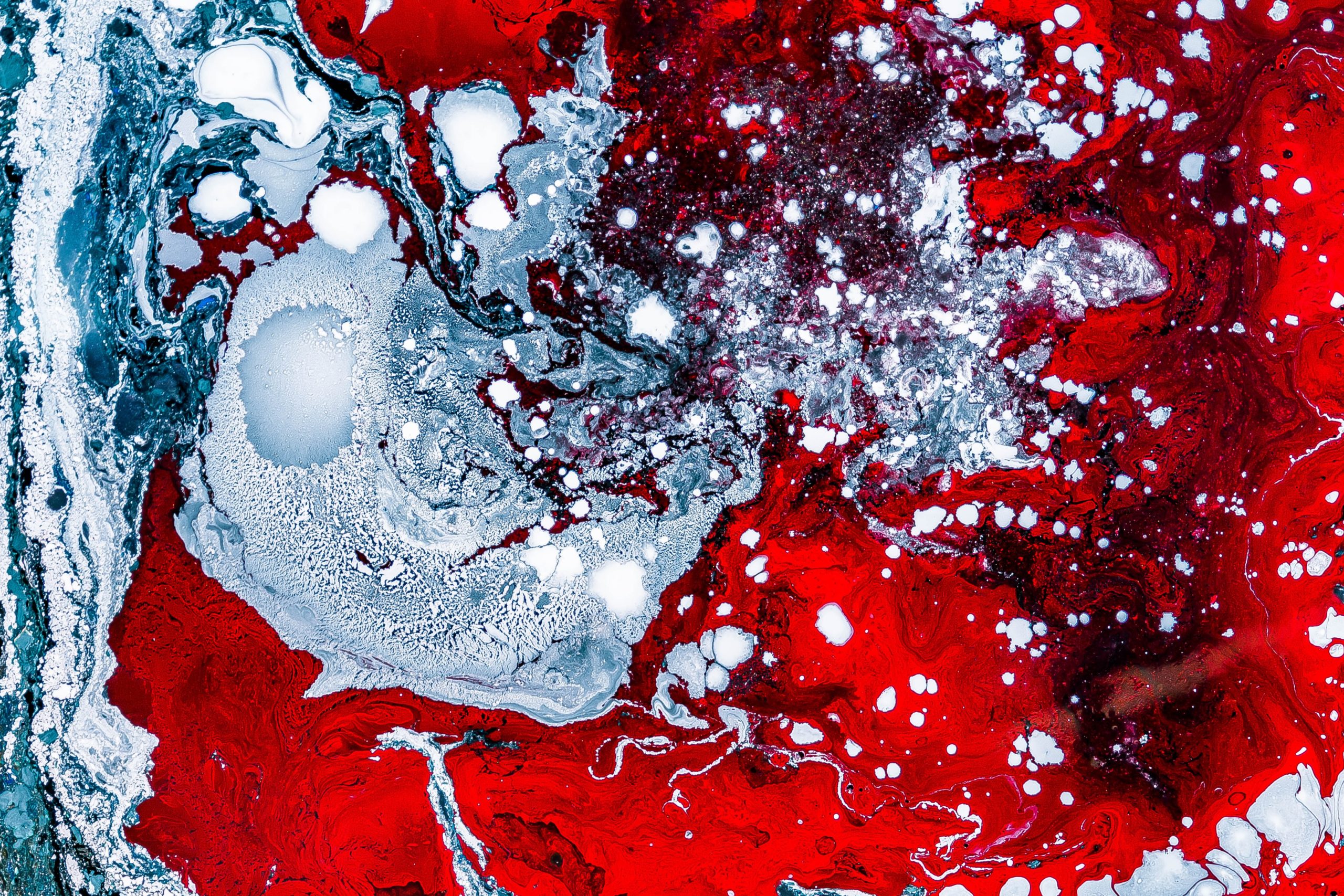Above image : Ambrosius Bosschaert the Elder, A Still Life of Flowers in a Wan-Li Vase on a Ledge with further Flowers, Shells and a Butterfly, 1609-10
We get so excited about the big moments; graduation, weddings, hitting a major accomplishment at work, the birth of children; and while all those things are wonderful, they only last a day. It’s the in-between days which matter, which deserve our rapt attention. It’s the in-between and ordinary days which take you from goal to goal and further on toward your dreams.
But we shun the in-between days, willing time to hurry up and pass. We begrudge time for moving slowly, and wish it to stand still while we celebrate. What is most surprising about the mundane life is how much we rail against it.
The mundane details are where life happens.
Our ordinary, routine actions the majority of our lives. It’s the daily habit of sitting down with your journal. The kitchen table you sit at every morning, the ways you pass idle hours; all these details add up to a life.
The small details compose our lives.
This realization is why so much great art is about the ordinary. Monet’s lilies catching the French light just so. A water pitcher on a table. Touching novels about a family of four girls during the Civil War; a twelve year old boy living on the Mississippi getting into trouble with his best friend. It’s paying attention to the run of the mill, normal patterns which make life sweet.
Some of my favorite contemporary photographs are still lifes which capture the beauty of the everyday. Photos of flowers brought in from a spring garden, of cheese or fruit waiting to be cut for an afternoon meal, of simple details in a beautifully curated room. They all reveal so much about the perspectives and values of the artist, whether it’s the photographer, or the homeowner.
It’s when we observe and embrace the mundane parts of life that we cease trying to escape our lives, and invest more time in making them beautiful.
Jerry Seinfeld has a quote about not believing in quality time with his teenagers. “Quality time” implies that some time is more special or important than other time. He pushes against the idea that some time is better than others, that planned outings are somehow higher ‘quality’ than the in-between moments. It’s all time, all part of life. You can use it or not.
The key then, isn’t to obsessively plan for the big events – the lavish vacation, or the big anniversary celebration next year – but to pay attention to the commonplace. These small moments give the reasons for the big moments.
Paying attention to the small things in life means approaching your daily life thoughtfully. It means setting intentions for the day and carving out time to think and breathe. It’s time for contemplation, for reviewing, and yes, for planning. Attending to the small, ordinary things ensures you realize the season you’re in; you aren’t willing life to pass by quickly, hopping from major celebration to celebration, or milestone to milestone.
Our current situation brings the realization that the ordinary moments shape you more than any other influence.
Before the pandemic, normal was rushing from thing to thing, event to event, blockbuster to blockbuster, chasing milestone after milestone. Bustling and rushing and busyness were the norm, proof of “importance” in our lives. If the pandemic has brought anything amid all it’s taken, it’s a reminder to focus on what is truly important – family, health, safety. The irony is, none of the great things in life can be rushed or helped by busyness. They are all best enjoyed slowly.
Our understanding of this fact has unfolded in stages.
In the spring, many suddenly noticed a laundry list of improvements to make to their spaces. The small annoyances or omissions around the house become quite gaping when you focus on them. We’ve finally found the time to hang photographs or paint the front door or make the backyard a welcoming place. The home improvement industry is up thirty percent because people are focusing on enjoying their homes, instead of running from them. We’ve finally found time for the small but significant things in life.

As interior designers shifted from what photographed well to what was actually useful in their spaces, the world remembered the mundane. No couch can be tolerated to look better than it feels when you’re stuck inside for months on end. Womenswear designers and fashion enthusiasts faced the brutal reality that no one is curling up in couture and sweat pants are real clothes for the foreseeable future. The mundane became our focus.
The mundane has been elevated. The importance of family – biological and chosen – has reemerged. Families started having real conversations around the dinner table again. Couples began spending time with one another every night. Siblings who live across the country from one another began to reconnect. There is nothing quite like being shaken out of our usual escapism to face the mundane-ness of reality.
As people continued to shelter inside, the idea of celebrity lost its glitzy sheen. Suddenly the sparkling parties, lavish dresses, and ostentatious expense of the celebrity coterie seemed silly. Good. It was. We’ve recovered the truth that no amount of wealth, status, or name recognition really changes the most important aspects of life. All that matters is health – mental and physical, and the means to be able to take care of yourself and your family. The ordinary parts of life became the most pressing parts of life.
Yet, I wonder whether we’ve already forgotten these lessons.
Escapism has managed to endure as a national pastime. The world is in a pandemic, temporarily forced indoors and prevented from going out and living our busy lives. What do we turn to? News and social media and Netflix and online museum tours and YouTube reunions, on and on. Anything to dull the daily grind of living, anything for entertainment.
Rather than avoiding boredom, we should welcome it. Instead of the shiny new thing, embrace ordinary. Embrace the minutia of daily life. Boring is where the life is, down in the weeds. It’s every detail from how we take our morning coffee to our relaxing evening options, the way we put one foot in front of the other. Life isn’t about crossing the finish line. It’s about progressing forward, and retaining perspective to see the beauty in the journey along the way.
“Most of the luxuries, and many of the so-called comforts of life, are not only not indispensable, but positive hindrances to the elevation of mankind,” wrote Thoreau. While Thoreau went to the woods to learn to live deliberately, we’ve had a deadly disease sweep across the globe. Both do much for putting priorities straight. Once we understand that the ordinary parts of life are life, we don’t feel the need to escape. We can look with clear eyes upon our lives and get back to the business of living. Somehow, dealing with the issues on the ground causes us to rise above the noise of modern life.
The antidote to rushing and bustling is paying attention. The problem with social media, Netflix, YouTube, etc., is they rob you of your attention. The endless scroll of the news feed, the suggested content, the fact there always seems to be something new or outrageous to see. The ping notifications train you to respond immediately, to press the button like Skinner’s pigeons, to while attention away on a screen instead of attending to the mundane trivialities of real life. You drown out the automation by paying attention to life – to the sounds of the birds in the backyard, to the warmth of sunshine on your skin, to the sidewalk stretching in front of you.

Pay attention to the ordinary and you’ll discover the richness of life. We focus on the milestone events, to the exclusion of the rest of life, our existence becomes shallow. Real life is the journey.
The constant need for excitement is a weakness.
Many words have been written about the emotional dangers of social media and time online. I’ve even penned a few myself. Part of the concern stems from the reward system our apps have conditioned us to expect. Our emotions hinge on the comment section; soaring with the likes, plunging with the quips. We’ve become small scale adrenaline junkies. Virtually every religious and psychological school of thought teaches that the chasing of emotions – of following whims and passions with little regard for reason – is a terrible pattern to be avoided. From Plato and the Ancient Greeks espousing moderation, to meditative practices of detaching emotions from worth, to current Cognitive Behavioral Therapies; living life swinging from one emotional high to the next proves harmful to the human experience.
On the other side of the spectrum, numbing ourselves – whether it’s through drugs, emotional distance, or obsessive practices – from pain or feeling is equally harmful as it blinds us to the happenings of life. The adrenaline junkie and the drunk are both asleep, stumbling through their existence. Both shuffle forward, disregarding the here and now for an always much-better illusory future. However, when we steel ourselves to constantly press onward, unrelenting, never dropping our gaze from the coveted horizon, we rob ourselves of the joy of seeing life unfold. How devastating.
Lest I appear to disdain parties and celebrations, allow me to clarify. Celebrations do have an important role. Acknowledging achievements and looking back at how far you’ve come is a healthy practice, can keep you motivated, and serves as a reminder of how capable you are. These are all great things. When these temporary things become your entire focus, and the motivation becomes finding a recurring “mountaintop experience” instead of progress, ego and emotional decision-making can start to enter the picture. As we’ve seen, emotional decisions can lead to a destructive pattern. The years and weeks between milestones are just as important. In fact, they are more important because it’s the daily attention and effort which earns you those milestones. Focusing on the process, not the outcome, is what makes the effort worthwhile.
Instead of trying to escape the commonplace, embrace it. In tending to the small, mundane aspects of our lives, we are tending to the quality of our actual lives. The ordinary composes our lives.
We should embrace the mundane, the in-between, the normal days where nothing happens. It’s those very days where nothing noteworthy happens that life is built.




